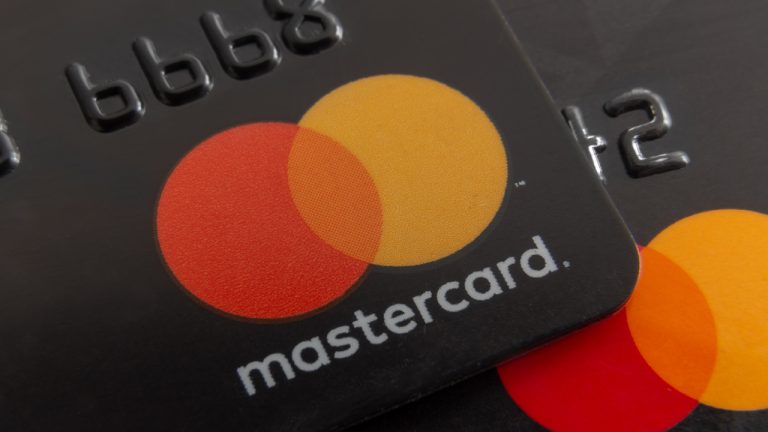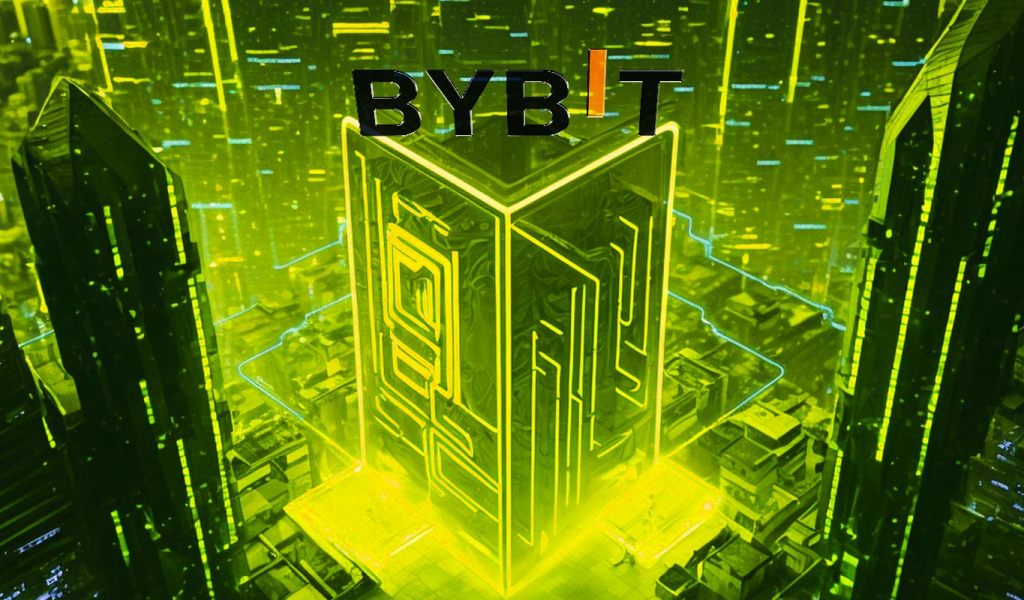
Payments giant Mastercard is collaborating with a handful of layer-1 altcoin projects to create common crypto standards. In a new press release, the credit card giant says that it’s teaming up with Ethereum (ETH) rivals Solana (SOL), Aptos (APT), Polygon (MATIC) and Avalanche (AVAX) to bring more trust to blockchain transactions. According to Raj Dhamodharan, […]
The post Payments Giant Mastercard Partners With Solana, Polygon, Aptos and Avalanche To Create Common Crypto Standards appeared first on The Daily Hodl.

Mastercard’s new solution revolves around providing “secure transactions between users, verified according to standards” set by the company.
Global financial services giant Mastercard has launched a new Web3 solution aimed at enhancing user verification standards and “reducing the opportunities for bad actors” in the digital asset space.
The solution is dubbed the “Mastercard Crypto Credential” and its launch was announced on April 29.
In an accompanying explainer video shared to Twitter, the firm outlined that its “building a way for Web3 and blockchain service providers to help secure transactions between users, verified according to standards set by Mastercard.”
At #Consensus23, we announced how we are instilling trust in the blockchain ecosystem through Mastercard Crypto Credential. With crypto wallet providers @Bit2Me_Global, @LiriumAG , @MercadoBitcoin and @UpholdInc and public blockchain network organizations @AptosLabs,… pic.twitter.com/P33mtDVAas
— Mastercard News (@MastercardNews) April 28, 2023
As part of the solution, users will be issued a “Mastercard crypto credential unique identifier,” which in theory, enables people to instantly verify that an address they want to send funds to has been vetted by Mastercard and has been operating in compliance with the firm’s standards.
“The solution is also designed to support compliance through the exchange of essential metadata, required to meet regulations,” Mastercard stated, adding that it should help “reduce the opportunities for bad actors and the risk of funds being lost for good.”
As such, even if bad actors slip through the cracks and obtain a unique identifier, it appears Mastercard can move quickly to revoke their verification, if they have been found to have engaged in nefarious activity.
The firm named a long list of partners behind the solution. On the wallet side of things, Mastercard has teamed up with crypto wallet providers Bit2Me, Lirium, Mercado Bitcoin and Uphold.
In terms of blockchains, the firm has partnered with Aptos Labs (Aptos), Ava Labs (Avalanche), Polygon Labs (Polygon) and The Solana Foundation (Solana).
Related: Bybit to introduce mandatory KYC requirements starting May 8
Mastercard also outlined that it will be “tapping into CipherTrace’s suite of services — including CipherTrace Traveler — to help verify addresses and support Travel Rule compliance for cross-border transactions.”
Mastercard has been continually upping its exposure to the crypto sector over the past couple of years, and the latest announcement comes just a few weeks after it launched a nonfungible token (NFT) gated musician accelerator program in collaboration with Polygon.
The program offers free access (until the end of April) to materials, unique artificial intelligence (AI) tools and other experiences to holders of Mastercard’s Music Pass NFT.
Mastercard competitor Visa also made a crypto move earlier this week, after Cuy Sheffield, the firm’s head of crypto took to Twitter on April 24 to announce a new stablecoin payments-focused project.
While details are sparse at this stage, Sheffield shared a job listing for the role which notes that the company is “building the next generation of products to facilitate commerce in everyone's digital and mobile lives.” The company is on the lookout for someone with strong experience in Web3 and blockchain tech.
Magazine: Unstablecoins: Depegging, bank runs and other risks loom
 The world’s largest crypto exchange, Binance, has lifted certain restrictions on Russian users, local crypto media unveiled. According to multiple reports, Russians can once again use their bank cards to make deposits and the trading platform has canceled a limit on their balances which was introduced in compliance with European sanctions. Russian Cards, Including Visa […]
The world’s largest crypto exchange, Binance, has lifted certain restrictions on Russian users, local crypto media unveiled. According to multiple reports, Russians can once again use their bank cards to make deposits and the trading platform has canceled a limit on their balances which was introduced in compliance with European sanctions. Russian Cards, Including Visa […] On April 13, a C6 Bank customer in Brazil shared screenshots of his online bank account, revealing that the financial institution was tracking CO2 emissions from his purchases and urging him to compensate monetarily. C6 Bank states that the new tool aims to inspire Brazilians to adopt more sustainable behaviors. ‘CBDC Preview’ — Bank Customer […]
On April 13, a C6 Bank customer in Brazil shared screenshots of his online bank account, revealing that the financial institution was tracking CO2 emissions from his purchases and urging him to compensate monetarily. C6 Bank states that the new tool aims to inspire Brazilians to adopt more sustainable behaviors. ‘CBDC Preview’ — Bank Customer […] According to Mastercard, the payments giant has launched non-fungible tokens (NFTs) that grant access to the Mastercard Artist Accelerator program, designed to support emerging musicians. Developed in collaboration with Polygon, the NFT project highlights Mastercard’s intent to embrace Web3 technologies. Mastercard Launches Second NFT Offering In January, Mastercard announced its partnership with Polygon to support […]
According to Mastercard, the payments giant has launched non-fungible tokens (NFTs) that grant access to the Mastercard Artist Accelerator program, designed to support emerging musicians. Developed in collaboration with Polygon, the NFT project highlights Mastercard’s intent to embrace Web3 technologies. Mastercard Launches Second NFT Offering In January, Mastercard announced its partnership with Polygon to support […]
This month Mastercard is launching an artist accelerator program for musicians with a catch - access to the program is only possible via an NFT member pass.
Mastercard has been among legacy companies rooted in traditional finance (TradFi) to jump into the Web3 space. The company has been involved with a number of Web3 integrations in recent years.
Most recently on April 12, Mastercard announced its new artist accelerator program, however this time they added a Web3 twist. The program is nonfungible token (NFT)-gated, therefore is only accessible to holders of its Mastercard Music Pass NFT.
According to the announcement, the NFT is a limited-edition and free until the end of the month to both musicians and fans. The program was created in collaboration with Polygon and offers free access to educational materials, unique AI tools and other experiences.

Raja Rajamannar, the chief marketing and communications officer of Mastercard said programs like this are in place to help users “better understand and trust how blockchain and digital assets are used.”
“We also believe that Web3 can be a powerful tool in connecting people and building communities around shared universal passions.”
Mastercard highlighted that it has been a long time supporter and simultaneously an early adopter of Web3 technologies to bring fans and creators more opportunities to create “exclusive, inclusive and scalable experiences.”
Related: Mastercard to settle transactions for stablecoin wallet in APAC
Mastercard has already selected five artists from different genres around the globe to participate in the program. In addition to Web3 technologies the artists will be exposed to a new artificial intelligence (AI)-driven music studio.
This development from Mastercard comes less than two months after both it and Visa announced that they would be pulling back on all new crypto and blockchain partnerships. The financial service providers said that all new launches would be delayed until improved market conditions are visible, along with a more clear and established regulatory framework.
Magazine: Andy Warhol would have loved (or possibly hated) NFTs

Stablecoins offer a way for consumers — particularly Americans — to escape the financial industry’s punitive transaction fees.
As rising prices have forced consumers all over the world to reduce their spending and find new ways of coping with the increased cost of living, consumers are finding themselves relying on credit cards even more than they already were.
More Americans are unable to pay their credit card bills in full at the end of the month, with 46% of credit cardholders carrying month-to-month debt, up from 39% in 2022. A recent report from the Federal Reserve Bank of New York highlighted how the current 15% year-to-year credit card balance increase represents the largest jump in more than 20 years.
It’s undeniable that ordinary people are facing higher prices across the board, and are increasingly unable to make credit card payments. That’s because payments giants like PayPal are taking advantage of consumers, and we’ve all been letting them get away with it.
As credit card spending in the United States almost entirely benefits Visa and Mastercard, who handle 80% of total transactions, the failure of the competitive model in the credit card industry may be to blame for at least part of the crisis at hand
Related: Did regulators intentionally cause a run on banks?
But that’s not all: With the highest credit card swipe fees of any major economy, American businesses pay up to seven times more in swipe fees than businesses in Europe, and five times more than businesses in China — a cost that gets passed down directly to consumers. In order to avoid shouldering transaction costs, merchants are forced to set higher prices than they would prefer — that’s prices for all consumers, not just those choosing to pay by credit card — which essentially means that anyone paying by cash or debit card is forced to pay a higher price for the convenience of a select few.
It’s true that electronic payments are convenient, and they’ve solved many of the cross-border problems posed by an old cash-only mentality. However, consumers end up paying a lot more for this comfort than they might have been led to believe, and they might not even know it.
In 2023, the technology at our disposal is so advanced that centralized services imposing limits on merchants’ or customers’ rights to send and spend simply should not exist.
Why, in today’s world, should anyone be forced to use a centralized service that is specifically designed to take such a big cut of their every purchase?
By replacing old systems and traditional payment providers — which serve the greater monopoly rather than hard-working ordinary people — distributed solutions can save consumers and merchants more money. In order to do this in a safe and transparent fashion, however, volatility cannot be a part of the equation, which means traditional cryptocurrencies cannot be the answer. But stablecoins could be.
Give me my goddamn money @paypal. I should have conducted this transaction in bitcoin.
— Neeraj K. Agrawal (@NeerajKA) November 11, 2011
Stablecoins are specifically designed for price continuity, as the name suggests. Their value is directly tied, or pegged, to a “stable” reserve asset, like a precious metal or the U.S. dollar, so their price is ultimately fixed. By allowing for real-time payments over blockchain networks, they offer faster and more efficient money movement than their fiat counterparts. With a more concrete value proposition for everyday use, they represent a more effective alternative to more highly volatile cryptocurrencies.
But with some stablecoins going as far as offering 99% cheaper fees for consumers and merchants compared to what the current global payment solution providers offer, they also represent a good way out of our dependency on credit cards as a whole.
In a 2021 speech, the Federal Reserve Board’s vice chairman for supervision, Randal Quarles, invited us to “not fear stablecoins,” as their potential benefits should be taken into “strong account,” and “the possibility that a U.S. dollar stablecoin might support the role of the dollar in the global economy.” Elsewhere in the world, things are moving in a similar direction. For example, the Digital Euro Association sees “automated micropayments as a way for Europe to maintain its digital competitiveness.”
The solution may be found in stablecoins themselves or in the mix between traditional financial structures and the innovations of Web3, and it could be easier to implement than we might think.
Related: Bank collapses are spurring interest in self-custody startups
Since merchants may be reluctant to build up the necessary crypto knowledge they would need to accept stablecoins, they could instead look to providers who would allow them to both accept stablecoins as a currency, and get settled into bankable fiat currency without the need to change accounting procedures. The stablecoin provider could add value, security and transparency to its proposition by getting the stamp of approval of something like a bank guarantee, in which case the value of the stablecoin in question would be fully protected, and consumers’ peace of mind would be assured.
The important thing to remember is that both merchants and consumers — sick of a system keeping them hostage — are desperate for innovative solutions to a crisis that’s been left unchecked for simply too long. To this end, the mainstream use of stablecoins as a means of payment does have the potential to save us from our dependency on the credit card industry and even drive down gouged consumer prices. Their value proposition shouldn’t be overlooked.
What will it take to implement a cheaper, more efficient and straightforward way to conduct business? Are we resigned to letting ourselves be taken advantage of? If the answer is no, then stablecoins and other low-fee Web3 solutions may be where we need to start.
This article is for general information purposes and is not intended to be and should not be taken as legal or investment advice. The views, thoughts and opinions expressed here are the author’s alone and do not necessarily reflect or represent the views and opinions of Cointelegraph

Despite global bank turmoil and regulatory crackdowns, traditional and decentralized finance (DeFi) are continuing to blend.
Take, for example, the recent issues that Circle-issued USD Coin (USDC) faced when it depegged from the U.S. dollar following Silicon Valley Bank’s collapse. Two weeks later, Mastercard boldly integrated the stablecoin into its infrastructure in the Asia-Pacific region, allowing users to spend USDC through its network. It’s happening, folks!
And let’s not forget about Bitcoin (BTC) — that digital gold is still on the rise and decoupling from Wall Street, once again proving its value proposition and prompting calls for a hedge against equity markets in the long run.
This week’s Crypto Biz documents the latest developments on worldwide crypto adoption, and how banking system fears impact the crypto space.
Banks turmoil and regulatory crackdowns happening worldwide have not slowed down the ongoing blending of traditional and decentralized finance (DeFi). The on-ramps connecting the two sides seem even stronger despite the wild winds of change.
Global payment provider Mastercard has made another move into the crypto space to allow retail customers in the Asia-Pacific region to spend stablecoins anywhere Mastercard is accepted. This move was made possible by a partnership with Stables, an Australian stablecoin platform. Users can spend and save USDC by converting it into fiat and settling on the Mastercard network. The wallet will accept deposits in several stablecoins, including Tether (USDT) and Binance USD (BUSD), with all deposits automatically converted into USDC.
We've partnered with @Mastercard and @circle to allow people to spend $USDC anywhere Mastercard is accepted - that's over 54 million locations worldwide! pic.twitter.com/KE8PS0bEOz
— Stables (@stables_money) March 21, 2023
On-ramps for digital assets are also increasing in Nigeria, as crypto wallet MetaMask expanded direct transactions with local banks. MetaMask’s parent firm ConsenSys has partnered with crypto fintech MoonPay, enabling users in the country to purchase crypto via instant bank transfers without requiring a credit or debit card. The integration is estimated to reduce the decline rate for direct crypto purchases in Nigeria from 90% to 30%. Nigeria is a major market for MetaMask, ranking third in mobile monthly active users. Chainalysis ranks Nigeria as one of the top 20 countries in cryptocurrency adoption.
Naija dey run things for MetaMask
— MetaMask (@MetaMask) March 21, 2023
Nigerians rank 3rd for active mobile users worldwide and are among the top 10 countries that visit https://t.co/uH8OHwxe2D. E be like say crypto dey hot for this side ohhttps://t.co/VTeUzwhR4o
In a “temporary” bye-bye, crypto exchange OKX emailed Canadian users that the firm “will no longer provide services or allow users to open new accounts in Canada starting on March 24, 2023.” OKX cited “new regulations” behind the move, saying it is only temporary while it works with regulators. By June 22, OKX’s customers in the country must close open options, margins, perpetuals and futures positions. Fiat or tokens must also be withdrawn by that date. In February, The Canadian Securities Administrators published a notice requiring crypto exchanges to sign new, legally binding undertakings while they await registration with regulators.

With fears of a global banking crisis on the rise, Bitcoin’s value proposition is on full display as its price continues to climb following the collapses of Silvergate, Silicon Valley Bank and Signature Bank. ARK Invest CEO Cathie Wood believes the current decoupling of BTC’s price to the equity markets may attract more institutional investors into Bitcoin over time. As for the impact on Bitcoin’s price from institutional interest, Wood expects that most firms would allocate between 2.5% to 6.5% of their investment portfolios to BTC by 2030, taking the leading cryptocurrency’s price to $1–1.5 million.
ARK Investment Management CEO Cathie Wood says the behavior of the Bitcoin's price through the latest banking turmoil will attract more institutions and investors https://t.co/2d8cT7SX3n pic.twitter.com/Eaymh05lhq
— Bloomberg Crypto (@crypto) March 21, 2023
How to analyze banks and avoid inaccurate market capitalization indicators — such as the $15.8 billion value of Silicon Valley Bank? Crypto analyst Marcel Pechman delves into the enterprise value metric and how it provides a better picture of a bank’s balance sheet terms by subtracting net debt from market cap. Of course, Pechman first explains the relationship between banking valuation and cryptocurrencies, specifically Bitcoin’s ethos.
Crypto Biz is your weekly pulse of the business behind blockchain and crypto, delivered directly to your inbox every Thursday.

Mastercard has entered a collaboration that would allow retail customers in the APAC region to spend their stablecoins anywhere Mastercard is accepted.
Global payment provider Mastercard is launching a stablecoin digital wallet integration with the Australian stablecoin platform Stables.
Mastercard and Stables on March 20 announced a collaboration to allow retail customers in the Asia-Pacific (APAC) region to spend their stablecoins anywhere Mastercard is accepted.
The collaboration involves a stablecoin-only wallet built by Stables, coming with a payment card supported by Mastercard. The payment card enables users to save and spend the USD Coin (USDC) stablecoin by converting the digital currency into fiat and settling on Mastercard’s network. The card will be accessible through the Stables digital application via mobile wallets.

According to Mastercard Australasia’s head of fintech, Kallan Hogan, the company’s collaboration with Stables is a significant development in terms of Web3 adoption.
“Mastercard is committed to powering innovative payment solutions that give cardholders the freedom to spend their assets where, how, and when they want,” Hogan said, adding:
“Stables is building a solution for the Web3 sector leveraging Mastercard’s global network and cyber and intelligence tools, including CipherTrace and Ekata, with trust and security at the core.”
The Mastercard-enabled wallet integration will become available for users in the second quarter of 2023, Stables co-founder and CEO Daniel Li told Cointelegraph. The stablecoin digital Mastercard will be initially available for users based in Australia and is then planned to enter Europe, the United States, the United Kingdom and most of Asia Pacific.
The payment solution deploys Stables’ proprietary settlement engine that processes all payments using USDC and works directly with Mastercard to enable settlement, Li stated. At the same time, the wallet will accept deposits in a number of stablecoins, including rival stablecoin Tether (USDT) and Binance USD (BUSD), but all the deposits will be automatically converted into USDC at no cost.
Related: Circle taps Cross River as banking partner, expands ties with BNY Mellon
According to Li, Stables is confident in USDC’s future despite the recent issues involving the collapse of Silvergate Bank. The CEO stated:
“Stablecoins will play a pivotal role in the new financial system and will be core to bridging the worlds of traditional and decentralized finance. Stables will continue to work with USDC and Circle as a pivotal part of that ecosystem.”
In addition to crypto, users can also top up their balances using bank transfers, direct debit and other modes of payment, Li said. At launch, Stables supports deposits and withdrawals in the Australian dollar, with soon-to-come integrations including the U.S. dollar, euro, the British pound, as well as currencies frothe APAC, Latin America and Africa.

Payments giant Mastercard is partnering with cryptocurrency exchange Bybit to launch a debit card capable of making transactions using digital asset holdings. According to the announcement, the debit card will operate over the Mastercard network and customers can use it to make fiat purchases or withdraw cash from ATMs, all debited from their digital asset […]
The post Mastercard Teams Up With Bybit To Introduce New Crypto-Powered Debit Card appeared first on The Daily Hodl.